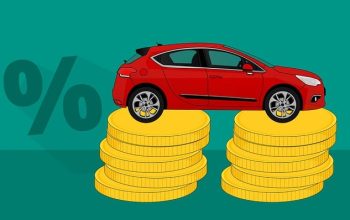Personalized auto insurance plans offer flexible alternatives to standard policies by tailoring coverage based on individual driving behaviors, needs, and preferences. Insurers analyze factors like driving frequency, destinations, and vehicle security to create customized packages. Innovative plans like usage-based (UBI) and pay-per-mile insurance reward safe and infrequent drivers or charge based on distance traveled, respectively, potentially saving premiums up to 40%. These tailored options alleviate the increasing cost of auto insurance (up 12% to $2,278 annually), particularly for young people and low-income individuals. By aligning premiums with actual risk profiles and driving habits, personalized coverage promotes safer driving and transparent expense management.
In the face of soaring auto insurance premiums, averaging a substantial 12% increase to $2,278 annually, drivers are seeking innovative solutions for cost-effective protection. Personalized coverage plans offer a promising answer by tailoring policies to individual driving habits and needs. This article delves into the world of customized auto insurance, exploring how options like usage-based and pay-per-mile plans can help manage costs while ensuring comprehensive protection in today’s challenging market. By understanding these plans and their benefits, drivers can make informed decisions to safeguard their financial well-being on the road.
- Understanding Personalized Auto Insurance Plans
- Aligning Coverage with Your Driving Habits
- The Rising Cost of Auto Insurance: Facts
- Benefits of Usage-Based and Pay-Per-Mile Policies
- How These Customized Plans Work
- Savings Potential: Case Studies
- Ensuring Comprehensive Protection While Managing Costs
Understanding Personalized Auto Insurance Plans

Personalized auto insurance plans are designed to offer more than a one-size-fits-all approach. These policies take into account your specific driving behaviors and needs, allowing for greater flexibility and control over your coverage. By evaluating factors like how often you drive, where you travel, and your vehicle’s security features, insurers can create customized packages that cater to individual drivers.
This tailored approach translates to potential savings on premiums. Usage-based insurance, for instance, charges rates based on your actual driving habits, rewarding safe and infrequent drivers with lower costs. Pay-per-mile plans go a step further by charging only for the distance traveled, appealing to those who use their vehicles infrequently or primarily for short trips. These innovative options are reshaping the auto insurance landscape, empowering drivers to manage their risks and budgets more effectively.
Aligning Coverage with Your Driving Habits

Personalized coverage plans offer a new approach to auto insurance by aligning protection with individual driving habits. Traditional policies often charge uniform rates, regardless of how much or how little someone drives. However, usage-based insurance (UBI) and pay-per-mile plans change this dynamic. These innovative options track your actual driving behavior, factoring in variables like miles driven, time of day, and even safe driving practices.
By embracing these customized plans, drivers can see significant savings on their insurance premiums. Moreover, UBI and pay-per-mile models ensure that policyholders only pay for the coverage they truly need, eliminating unnecessary expenses. This tailored approach not only manages costs but also encourages safer driving habits, creating a win-win situation for both insurers and consumers.
The Rising Cost of Auto Insurance: Facts

The rising cost of auto insurance is a significant concern for many drivers. According to recent data, average premiums have surged by 12%, reaching an annual figure of $2,278. This drastic increase can be attributed to various factors, including higher claims costs, liability expenses, and the increasing frequency of accidents. The financial impact is particularly burdensome for young drivers, those with lower income levels, and residents of areas with higher accident rates.
The surge in costs has prompted insurance providers to explore innovative approaches to pricing. Traditional policies often charge a flat rate based on generic risk factors, failing to account for individual driving habits and patterns. However, usage-based insurance (UBI) and pay-per-mile plans are gaining traction as more affordable alternatives. These customized options track driving behavior, offering lower rates for safe and conservative drivers while ensuring that those with higher risk profiles pay a fair share of the premium.
Benefits of Usage-Based and Pay-Per-Mile Policies

Usage-based and pay-per-mile insurance policies offer a fresh approach to auto coverage, appealing to cost-conscious drivers. These plans track your driving behavior and distance traveled, allowing for more personalized pricing. The primary advantage lies in the potential for significant savings; drivers who log fewer miles or exhibit safer habits can expect lower premiums. This is particularly beneficial for those who don’t drive regularly, such as students or individuals working from home, as they may only need insurance for specific periods.
Moreover, these policies provide a sense of fairness. Traditionally, insurance rates are based on broad averages, often penalizing good drivers with higher costs. Usage-based and pay-per-mile plans rectify this by rewarding responsible driving, ensuring that premiums reflect individual risk profiles more accurately. This transparency empowers drivers to take control of their insurance expenses and make informed decisions regarding their coverage choices.
How These Customized Plans Work

Personalized coverage plans, like usage-based insurance, track your driving habits through apps or devices installed in your vehicle. This data helps insurers calculate premiums accurately based on how much you actually drive and your specific risk profile. For instance, if you’re a careful driver who logs fewer miles annually, you might qualify for lower rates compared to a high-mileage driver with a history of speeding tickets.
These plans offer flexibility too. Pay-per-mile options, for example, charge you based on the number of miles driven rather than a flat rate or annual premium. This can be particularly beneficial if your driving habits vary significantly from month to month, allowing you to pay only for what you use.
Savings Potential: Case Studies

Usage-based insurance plans offer significant savings potential, especially for drivers with safer driving habits. For instance, a study by the Insurance Institute for Highway Safety (IIHS) found that drivers who participate in usage-based insurance programs can save up to 20% on their auto insurance premiums. These savings are achieved through monitoring driving behavior, such as speeding and hard braking, which are riskier and more expensive to insure. Similarly, pay-per-mile plans cater to low-mileage drivers by charging them based on actual miles driven rather than a set annual mileage. According to industry reports, qualifying drivers can expect to save anywhere from 25% to 40% on their premiums by switching to these cost-effective alternatives.
Ensuring Comprehensive Protection While Managing Costs

Personalized coverage plans offer a win-win situation: tailored protection and managed costs. By aligning insurance with your specific driving habits, these plans ensure you’re not paying for unnecessary coverage. For instance, usage-based insurance or pay-per-mile plans charge premiums based on how much you drive, which is ideal for low-mileage drivers looking to save money.
This approach also encourages safer driving behaviors as policyholders become more mindful of their habits, potentially leading to fewer claims and lower costs. Thus, personalized coverage not only helps manage expenses but also ensures comprehensive protection tailored to your needs.
Personalized auto insurance plans provide a win-win solution: tailored coverage that matches individual driving habits while managing costs in the face of rising premiums. By embracing innovative options like usage-based and pay-per-mile policies, drivers can gain control over their insurance expenses without compromising protection.



